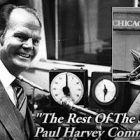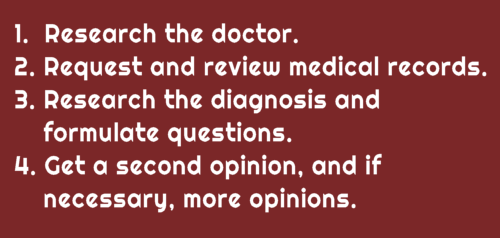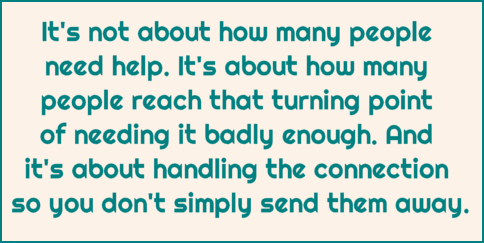Updated June 2018
Recently I was asked my opinion on the biggest challenges in patient advocacy as we turn the corner to 2016.
I didn’t hesitate with my answer. I know exactly what those huge challenges are. So I shared my answer, which I’ll also share with you in a minute.
As an individual, your answers might be slightly different from the ones I see. You might consider your biggest challenges to be recognition of the profession by potential clients, the ability to get people to pay for your services, the juggling of business as well as your advocacy work, time management – or many others. (What DO you think are your biggest challenges? Please comment to let us know.)
My answers came from the overall profession point-of-view. What challenges and hurdles do we see from the macro, 30,000 foot view of the profession of private advocacy? Here they are in reverse order – the most easily solvable and achievable through to the tallest hurdle we need to overcome.
3. No patient advocacy certification.
(Update 2018: Certification is now available! This one is no longer a hurdle.)
Some will tell you the lack of certification is a huge blockade – and it is. However, national / international certification is in the works, has made great strides in the last year, and is now within sight. Learn more about the status of patient advocacy certification.
2. Not enough advocates with business savvy.
There are hundreds of thousands of people performing advocacy tasks available in the United States and Canada on any given day. The key is that most are not doing it privately, for pay. They are family members and neighbors. They are nurses and doctors and social workers who work in medical practices, hospitals, nursing homes, labs….
But they are not professional, privately paid advocates, independent of the healthcare “machine” that forces them to make recommendations they would not otherwise make.
Among those who are working as private advocates, or plan to do so soon, not nearly enough have the business skills required to sustain a practice. Among them, a certain percentage will learn those skills – on the job – by making mistakes, then learning from them, or by studying or consulting with others who can help them with business skills before they make those mistakes.
The rest will never learn how to focus on, and manage a business – and they will fail. Unfortunately, every time someone fails at the business aspects of private advocacy, and therefore stops offering advocacy services, there will be dozens if not hundreds of patients who will never benefit by working with them. It’s not about their ability to be good, effective advocates. It’s about their ability to run a business.
That’s why I rank this as the second biggest hurdle – because each time an advocate goes out of business, patients lose, and the profession loses, too.
1. The biggest and most difficult to overcome challenge I see is that of supply and demand.
There aren’t enough advocates to go around, there aren’t enough advocates in enough places, and on the rare occasion there are enough advocates, there need to be more patients who recognize their existence and therefore reach out to hire them.
Unless there are enough advocates to serve the patients who need them, in the places they are needed, then we can’t grow the profession. Unless there are enough patients to hire those advocates, those advocates can’t stay in business. Yes – that’s Economics 101 – supply and demand. They need to be as equal as we can get them to be.
Where does marketing come in?
Many advocates have looked to The Alliance of Professional Health Advocates wondering why we don’t do more national, broad-based marketing to the masses to rustle up more patients to hire them. Then they are surprised when we tell them why.
It’s because promoting advocacy to patients on a broad basis – nationally (or internationally) – is just not targeted enough. National press might bring us mentions in Albuquerque or Dubuque or Ogunquit, but with few or no advocates in those areas, we leave a bad taste in the mouths of those who do search for them. That does the profession more harm than good. We’re too new to be able to afford the harm.
So instead, we support our members in their marketing where they live and work. We do it on a constant basis through workshops, books, and the Marketing Center in the APHA membership space. We do it by referring journalists, both national and local, to local member-advocates. And we do it annually through Private Professional Patient Advocates Week. And of course, we do it 365/24/7 through the AdvoConnection Directory, making sure those advocates can always be found in a search.
In other words, we support local marketing because it’s local marketing that can have the most profound impact on the demand side of the equation.
But there’s more….
We also emphasize to our members (and anyone else who will listen!) that the more advocates available (supply), the more patients will know the profession exists, the more they will understand the premise of paying for services, and the more they will be likely to hire a private advocate.
We see this every day. There are more active APHA members in pockets of the US – New England, New York City Metro / New Jersey, Florida, Chicago, the Bay Area (CA), LA and San Diego, Arizona – and not surprisingly, those areas are also among the most searched online in the AdvoConnection Directory.
The more advocates in a given area, the more awareness on the parts of potential clients, the more searches, the more hires, the more advocate success.
So – yes – marketing…. but NOT ONLY to promote ourselves to potential clients. As you can see, we need to promote the concept to encourage more advocates to take up the mantle.
This is an extremely important concept. It’s not about competition. It’s about floating all boats… It does all advocates good to embrace all other advocates who are doing the same work they do, or even complementary work. The more advocates in any given location, the more potential clients for all of them, even if that seems counter-intuitive. Patients will be more inclined to look for patient advocates because they’ve experienced outreach (marketing and promotion) from so many. They embrace the idea because they are exposed to it – they know to go looking for an advocate.

Overcoming These Obstacles
As an individual advocate, it is up to you to help overcome these obstacles, in particular numbers 1 and 2. Here are some steps to take:
- When it comes to being business savvy, we implore you to reach out for help when you know you need it, even if it’s an unpleasant thought. Don’t procrastinate yourself out of business. Learn about contracts, business insurance, marketing and customer service. Be sure your lack of business acumen doesn’t destroy your ability to be an effective private advocate. We are here to support you through APHA.
- When it comes to improving the supply and demand equation, reach out today to invite someone else to learn about advocacy as a career. You can help boost the number of advocates in your area, which in turn will bring more business to you all! (If you are a member of APHA, we reward you for referring new members – so take advantage!)
- Then – get marketing! Phone some former clients and ask them to refer you. Or begin your email newsletter. Or set up a speaking gig and put together your presentation. (Find support for all of these things in your APHA membership space or on the resources website.)
The rising tide floats all boats. This rising advocacy tide will float boats that might not have known to take advantage of it. If you help take the responsibility of spreading the word to patients AND advocates, you’ll be doing your boat-floating part.
LEARN ABOUT APHA MEMBERSHIP | FIND MORE REASONS PATIENTS NEED ADVOCATES






This article is spot on Trisha! One marketing idea, I was invited to be a panelist. So far, the panel consists of other senior industry professionals. Churches are our prime target for speaking opportunities. Along with myself, we have a Placement Assistance company, a Medicare/insurance specialist, a Realtor that specializes in downsizing- readying for move to assisted living, a Home Care company, as well as a Reverse Mortgage specialist. I would like to add a medical billing Advocate as well. Each panelist has been carefully vetted. The concept / needs assessment reflected that a LARGE number of churches would be interested in this type of panel discussion. I am also contemplating assembling a panel of different types of Advocates. I was asked to be part of this panel. If this goes well, I will be focusing my efforts on a multi specialty panel of Advocates. So few people understand that we exist, it makes marketing our services a challenge. I’m focusing a large amount of my time on the education piece. What I’ve found is, it’s a cart before the horse situation. I also connect with as many other Advocates locally and on LinkedIn as possible. Pooling information and coordinating our marketing/education efforts, helps us all.
Some great ideas here, Sandy! I love the idea of collaborating with professionals in other, related, topics – it serves not just the potential clients who hear you all speak, but each of those professionals may also become a referral service.
Thanks for sharing this approach 🙂